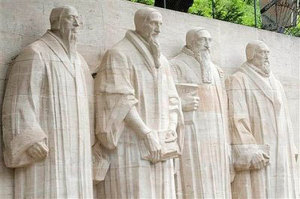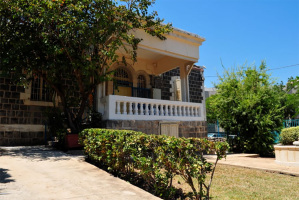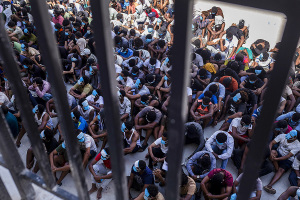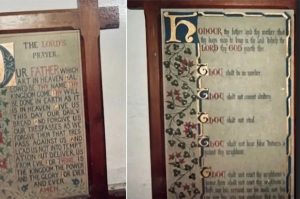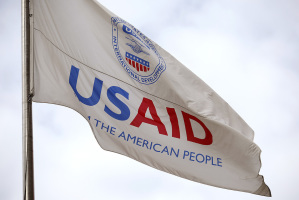ISIS Bus Attack Survivors Recount Horrors of Seeing Parents, Children Killed: '4 Families Destroyed'
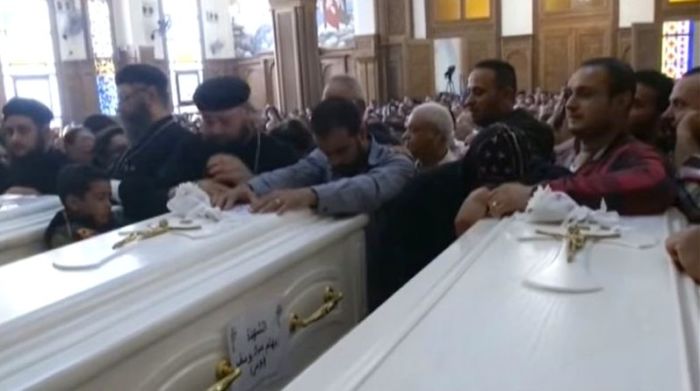
Victims of last week's attack on Coptic Christians have detailed the horrifying moments when gunmen murdered seven and injured at least 20 others after they left worship at a monastery in Egypt.
"We visited the monastery and spent a wonderful time but on our way back we were attacked by two cars who fired on us," 7-year-old Mina Basem told the Saudi-based Arab News. "I don't remember anything after that."
Basem's mother, Reham Milad Yusuf, was killed in the attack on buses departing from a desert Monastery near Minya last Friday. The Islamic State has claimed responsibility.
Basem's brother also suffered injuries. But he was able to escape the path of the bullets by hiding underneath his seat, one of his relatives told Arab News.
Along with Yusuf, those killed by the gunmen were six members of the Shehata family.
Safwat Shehata, who was not present when the attack occurred, told the independent Egyptian online newspaper Mada Masr that his cousins who were killed in the attack ranged in age from 12 to 55 years old.
"Three men and their children were killed," Shehata said. "Only my female cousins and two children survived. Four families have been completely destroyed. Snatched away by death."
Shehata said that his surviving cousins explained to him that the attackers told them: 'We will kill the men and children and leave you to live the rest of your lives in misery.'"
"The microbus driver tried to flee, but the bus was surrounded by the attackers," Shehata detailed. "They killed the driver first, shooting him in the head. Then they stopped the bus completely and no one could get away."
Shehata said that his two female cousins and the two children were injured. Both children were shot and one is suffering from internal bleeding, Shehata detailed.
"We do not fear death," Shehata was quoted as asserting. "People should be safe. There should be access to communication networks on that road. ... Our people tried to seek aid and reach out to someone, but they had no cell service."
Last Friday's attack followed a similar attack that occurred on a bus near the same monastery last year that killed 29. That attack was also claimed by the Islamic State, which has an affiliate group located in Egypt's Sinai region.
The Egyptian interior ministry announced this week that security forces had engaged in a firefight with 19 militants affiliated with the group that carried out last Friday's attack, killing them all. The authorities didn't say when the firefight with the militants took place.
Funerals were held on Friday and Saturday of last week for the deceased. On Saturday, the funerals for the six Shehata family members were held at the Prince Tadros church in Minya.
As Mada Masr notes, the Maghagha and Adwa Archdiocese demanded last year that the government implement measures to make the desert road to the St. Samuel Coptic Orthodox Monastery more secure following the May 2017 bus attack.
The church requested that there be a permanent security presence at the entrance of the road to the desert monastery, a police patrol to secure trips to and from the monastery, lighting and paving of the road, the installation of surveillance cameras and better mobile coverage for communication along the route. However, none of those request have been accommodated.
Daoud al-Samouili, a monk at the monastery, told Mada Masr that interior ministry officials visited the church in the wake of the attack. The officials reportedly suggested it might be best to just suspend visits to the monastery.
Following the attack last year, visits to the monastery were suspended for several months and then allowed to resume on Fridays only.
"They said it was forbidden to visit the monastery, but people still continued to go after the incident and nothing happened," Shehata told the outlet.
Egypt ranks as the 17th-worst nation in the world when it comes to Christian persecution, according to Open Doors USA's 2018 World Watch List.
The Coptic Community has faced several attacks and bombings over the last couple years, most of which have been claimed by the Islamic State.
The Egyptian authorities have worked to punish the culprits who bombed churches in Tanta and Alexandria in April 2017 and a church in Cairo in December 2016. In October, 17 militants accused of their participation in the bombings were sentenced to death while 19 others were given life in prison.
















